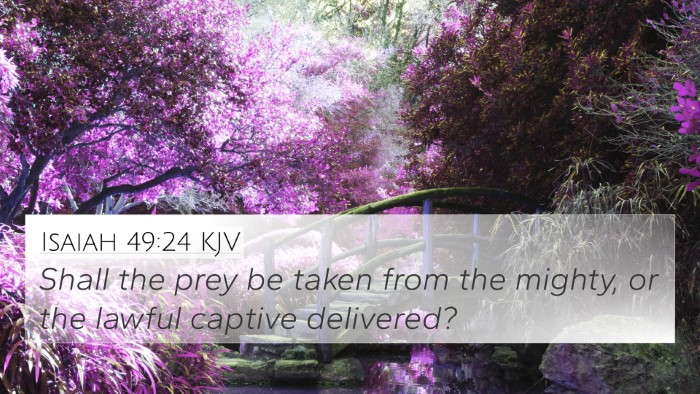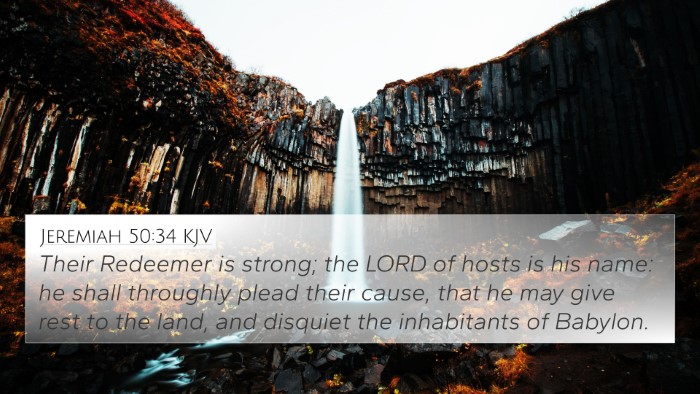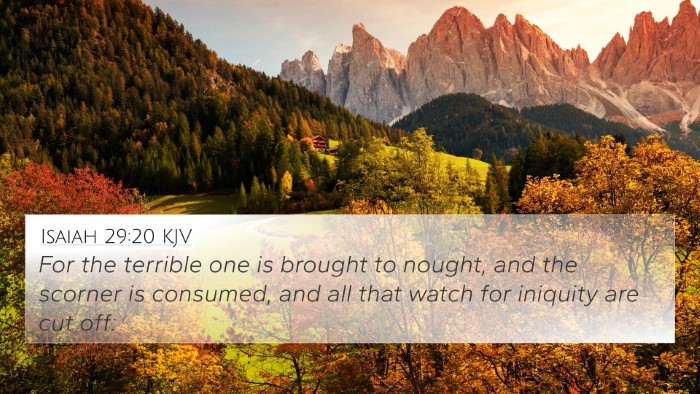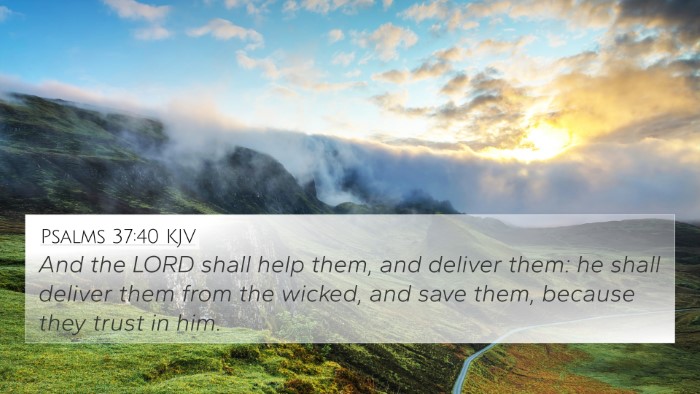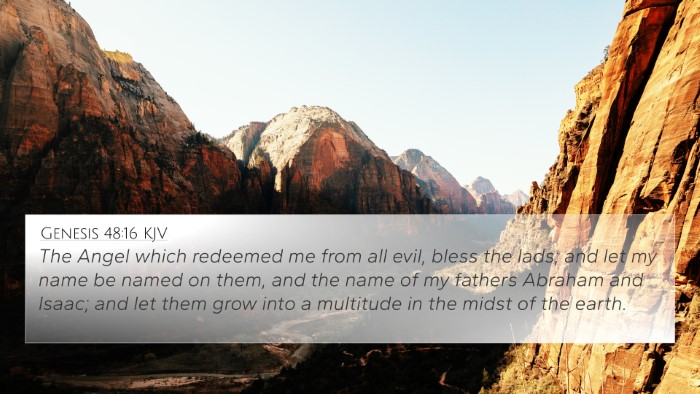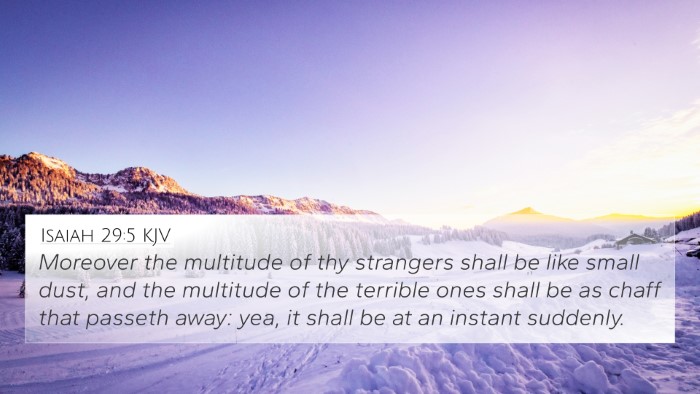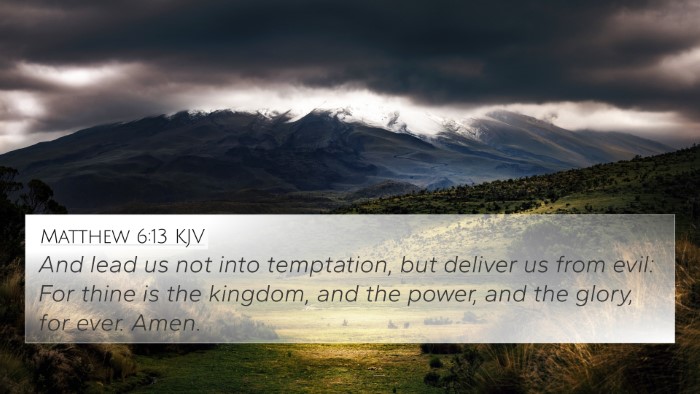Understanding Jeremiah 15:21
Verse: Jeremiah 15:21 (KJV) - "And I will deliver thee out of the hand of the wicked, and I will redeem thee out of the hand of the terrible."
Verse Meaning and Interpretation
The verse from Jeremiah 15:21 speaks to the profound assurance and promise of God's deliverance. Through the insights of Matthew Henry, Albert Barnes, and Adam Clarke, we find comprehensive interpretations that shed light on the meaning of this passage.
Divine Protection and Redemption
This verse emphasizes God's commitment to protect and redeem His people. Matthew Henry notes that this declaration serves to reassure Jeremiah amidst the challenges and adversities he faced during his prophetic ministry. God promises deliverance from both literal enemies and spiritual foes.
The Nature of God's Deliverance
According to Albert Barnes, the terms "wicked" and "terrible" highlight the force and severity of the adversaries that Jeremiah confronted. God’s promise implies a divine intervention that transcends human strength, providing hope and assurance when the situation appears dire.
Theological Implications
Adam Clarke elaborates on the theological significance of this promise as not only applicable to Jeremiah but also as a universal assurance for believers. The deliverance from the hand of the wicked symbolizes the overarching theme of redemption found throughout Scripture, reflecting God’s unyielding covenant with His people.
Cross-References and Biblical Connections
This verse can be cross-referenced with multiple passages that reinforce its themes of deliverance and redemption. Below is a list of Bible verses that relate to Jeremiah 15:21, illustrating the interconnectedness of Scripture:
- Psalm 34:17: "The righteous cry, and the Lord heareth, and delivereth them out of all their troubles."
- 2 Thessalonians 3:3: "But the Lord is faithful, who shall stablish you, and keep you from evil."
- Isaiah 54:17: "No weapon that is formed against thee shall prosper; and every tongue that shall rise against thee in judgment thou shalt condemn."
- Romans 8:31: "What shall we then say to these things? If God be for us, who can be against us?"
- 1 Peter 5:10: "But the God of all grace, who hath called us unto his eternal glory by Christ Jesus, after that ye have suffered a while, make you perfect, stablish, strengthen, settle you."
- Psalm 91:14-15: "Because he hath set his love upon me, therefore will I deliver him: I will set him on high, because he hath known my name."
- Luke 4:18: "The Spirit of the Lord is upon me, because he hath anointed me to preach the gospel to the poor; he hath sent me to heal the brokenhearted, to preach deliverance to the captives..."
Exploring Thematic Connections
Through comparative Bible verse analysis, one can observe the recurring themes of God's faithfulness and protective nature throughout biblical texts:
- Both the Old and New Testaments affirm God’s promise of deliverance during times of trouble.
- Cross-referencing biblical texts helps form a comprehensive understanding of God’s redemptive plan.
- Thematic Bible verse connections reveal how various authors echo the same divine principles across generations.
Practical Application of Cross-Referencing
For those studying the Bible, utilizing tools for Bible cross-referencing enhances understanding and enriches personal study.
- Bible Concordance: Helps locate specific verses with relevant themes and keywords.
- Bible Cross-Reference Guide: Assists in finding associated verses across Scripture.
- Cross-Reference Bible Study: Encourages deeper insights through comparative analysis.
Conclusion
Jeremiah 15:21 serves as a profound reminder of God’s promise to deliver and redeem His faithful ones. This verse, along with its supporting cross-references, forms a crucial part of the understanding of God's unwavering support in the face of adversity.
As we engage in inter-Biblical dialogue and interpret themes through cross-references, we gain a richer comprehension of divine truths woven throughout Scripture.




